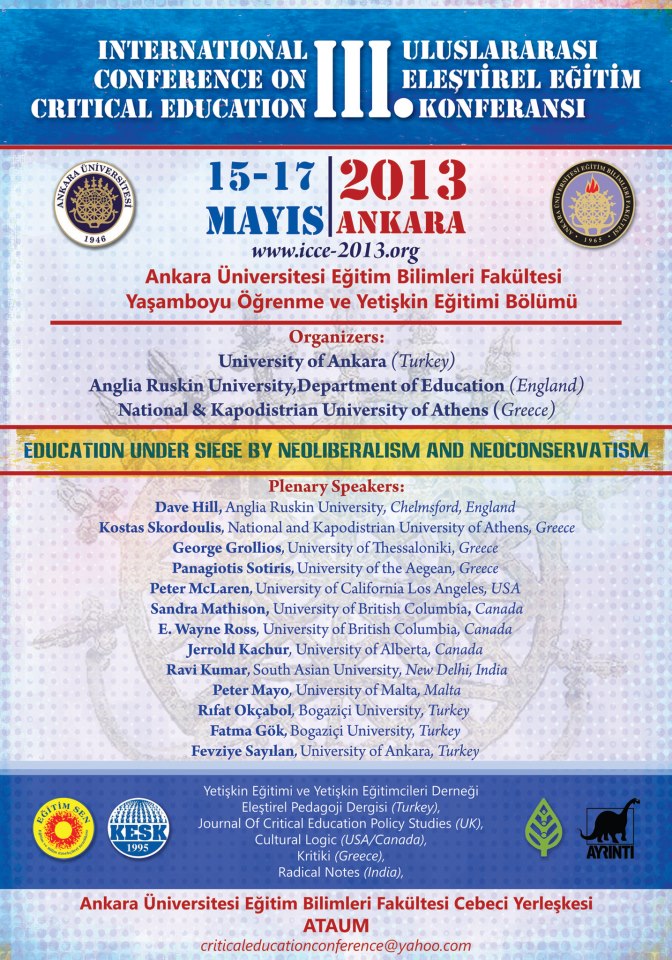Critical Education
Call for Manuscripts:
The Media and the Neoliberal Privatization of Education
Series Editors:
Derek R. Ford, Syracuse University
Brad Porfilio, Lewis University
Rebecca A. Goldstein, Montclair State University
As the neoliberal agenda for public education in North America intensifies, educational literature has increasingly turned its attention toward understanding the logics and processes of neoliberal privatization. Additionally, attention has been paid as to how educators resist these processes and practices, both in the classroom and beyond. This special issue seeks to deepen our understanding of the neoliberal privatization of education by extending critical examinations to an underrepresented field of cultural production: that of mainstream media reporting on education and the neoliberal privatization of education, which many believe represents a new round of primitive accumulation. By examining and analyzing the mainstream media’s relationship to the processes in which neoliberal education ideologies are constructed, reflected, and reified, articles in this issue will explicate the various ways in which the mainstream media has helped facilitate and legitimate neoliberalism as a universal logic in reforming education, both locally and globally. Articles will also speak to how critical educations have guided students in K-20 schools to understand the mainstream media’s relationship to supporting the neoliberal takeover of schools.
We welcome conceptual, empirical, theoretical, pedagogical and narrative articles that approach this topic from a variety of perspectives and frameworks. Articles included in the special issue may ask and examine questions such as, but not limited to: How has media coverage of teachers’ unions and teachers’ strikes reinforced and/or advanced privatization? What shift has taken place in terms of who is positioned in the media as educational “experts”? What are the differences between the way that various major news networks, newspapers, and news magazines talk about educational privatization? How are Teach For America and Teach For All being propelled by media coverage? What are the variations in media coverage of the neoliberal agenda for education? What are the alternatives and prospects for challenges to the mainstream media? How has ALEC impacted school reform policies and practices on the state level and to what extent has the media covered it? How have critical educators positioned their students to understand the mainstream media’s role in supporting the corporate agenda for schooling?
Manuscripts due: May 1, 2014
For details on manuscript submission see: CE Information for Authors
 Follow
Follow

